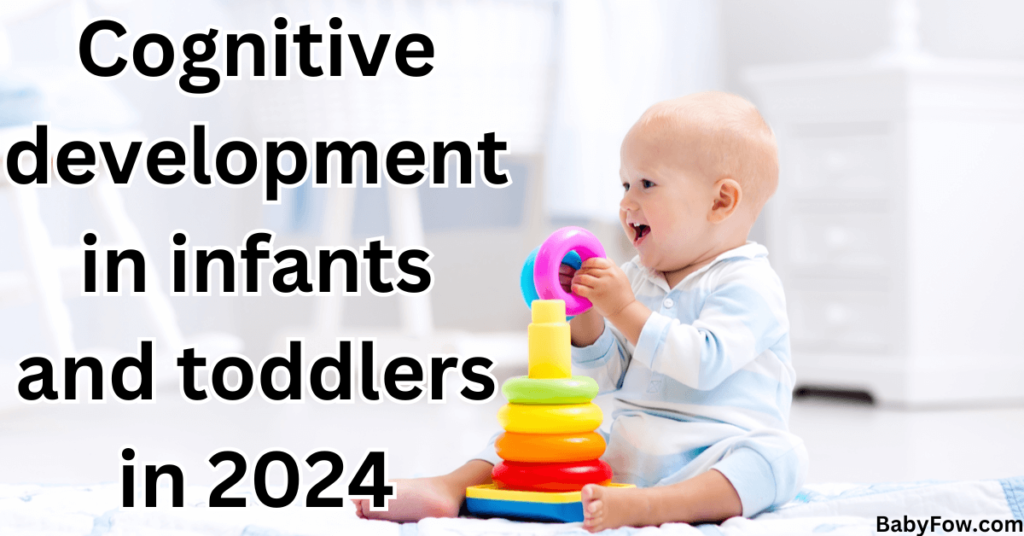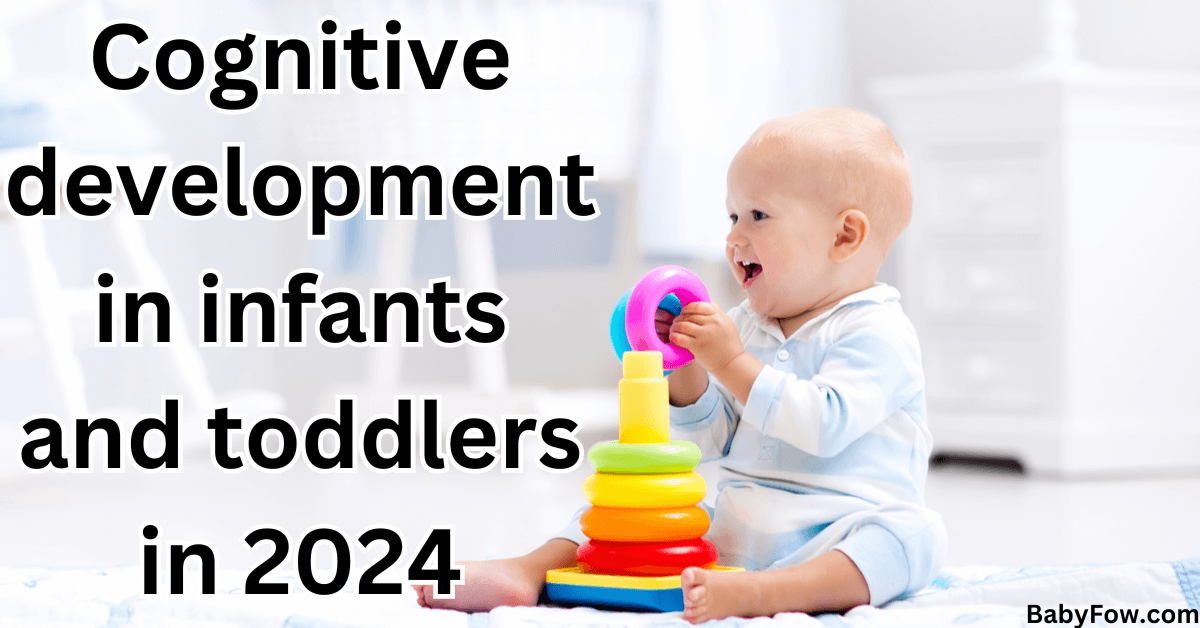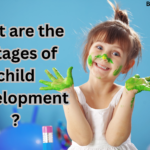Unraveling Cognitive Development in Infants and Toddlers: A Comprehensive Exploration
Are you curious about the remarkable cognitive growth that occurs in the earliest years of life? From recognizing familiar faces to grasping abstract concepts, the journey of cognitive development in infants and toddlers is a fascinating and awe-inspiring process. In this comprehensive guide, we’ll delve deep into the key milestones, the factors that influence this growth, strategies for nurturing development, and much more.
Understanding Cognitive Development
Cognitive development refers to the construction of thought processes, including remembering, problem-solving, decision-making, and information processing, from childhood through adolescence. In the context of infants and toddlers, it encompasses the acquisition of fundamental skills and abilities that lay the groundwork for future learning and understanding.
The Interplay of Nature and Nurture
While infants are born with an incredible genetic blueprint that shapes their cognitive potential, their experiences and interactions with the world around them play a crucial role in shaping their cognitive abilities. This intricate interplay between nature and nurture is what fuels the remarkable growth that occurs during these formative years.

Key Milestones in Cognitive Development
As infants and toddlers progress through various stages, they achieve significant cognitive milestones that mark their developmental journey. Here are some of the fundamental building blocks:
1. Sensory Exploration
From birth, infants rely on their senses – touch, taste, smell, hearing, and sight – to gather information about their environment. This sensory exploration lays the foundation for future learning and understanding. Through sensory input, they begin to develop early perceptual skills and build neural connections in the brain.
2. Object Permanence
Around 8 months old, babies begin to grasp the concept of object permanence – the understanding that objects continue to exist even when they’re out of sight. This milestone is a major cognitive leap, demonstrating the development of mental representation and the ability to hold information in their minds.
3. Language Acquisition
Babies are born with an innate ability to learn language. From babbling to recognizing familiar words, and eventually forming their first sentences, language acquisition is a remarkable cognitive feat that unfolds in the first few years. This process involves not only understanding words but also grasping the rules of grammar and syntax.
4. Problem-Solving and Reasoning
As toddlers grow, they start to develop problem-solving and reasoning skills. They learn through trial and error, observation, and experimentation. This cognitive flexibility lays the groundwork for more advanced thinking later on, including the ability to think logically, make predictions, and draw conclusions.
5. Theory of Mind
Around 3-4 years old, children begin to develop a theory of mind – the understanding that others have their own thoughts, beliefs, and perspectives that may differ from their own. This milestone is crucial for social cognition and the ability to empathize and navigate social situations.
READ MORE :
Factors Influencing Cognitive Development
While the cognitive development process is inherently wired into our biology, several factors play a crucial role in shaping and supporting this growth:
1. Responsive Caregiving
Attentive and responsive caregiving is vital for fostering cognitive development. When caregivers are attuned to an infant’s needs and provide nurturing interactions, it creates a secure base for exploration and learning. This sense of security and trust allows the child to focus their energy on cognitive growth.
2. Enriching Environments
Exposing infants and toddlers to a stimulating environment can greatly enhance their cognitive growth. Engaging toys, books, music, and various sensory experiences can ignite their curiosity, encourage exploration, and promote brain development. Enriched environments provide opportunities for active learning and intellectual stimulation.
3. Language-Rich Interactions
Engaging in language-rich interactions, such as reading, singing, and conversing with little ones, can significantly boost their language acquisition and comprehension skills. These interactions expose children to new vocabulary, sentence structures, and concepts, facilitating their language development and cognitive growth.
4. Nutrition and Physical Health
Proper nutrition and physical health also play a role in cognitive development. A well-balanced diet rich in essential nutrients supports brain growth and development, while adequate sleep and physical activity contribute to overall well-being, which can positively impact cognitive functioning.
5. Socioeconomic Status
Research has shown that socioeconomic status can influence cognitive development, as children from higher socioeconomic backgrounds tend to have access to more resources, better nutrition, and enriched learning environments. However, it’s important to note that a loving and nurturing environment can mitigate these effects.

Nurturing Cognitive Development: Strategies for Parents and Caregivers
As a parent or caregiver, you play a pivotal role in supporting and nurturing your child’s cognitive development. Here are some effective strategies to incorporate into your daily routine:
- Encourage Exploration: Provide a safe and stimulating environment for your child to explore, touch, and investigate. This hands-on learning is invaluable for cognitive growth. Rotate toys and materials to keep their interest piqued.
- Engage in Pretend Play: Pretend play fosters creativity, problem-solving skills, and the ability to think abstractly. Join in and let your imaginations run wild! Encourage your child to take on different roles and scenarios.
- Read Often: Reading to your child from an early age not only promotes language development but also introduces them to new concepts and ideas. Engage them in discussions about the stories, ask questions, and encourage them to make predictions.
- Ask Open-Ended Questions: Encourage your child’s curiosity by asking open-ended questions and engaging in thoughtful conversations. This helps them develop reasoning, critical thinking, and communication skills.
- Be Patient and Supportive: Every child develops at their own pace. Provide a nurturing and supportive environment that celebrates their achievements, no matter how small. Praise their efforts and encourage perseverance.
- Model Thinking Processes: Narrate your thought processes aloud as you problem-solve or make decisions. This helps children understand the cognitive steps involved and learn how to approach challenges systematically.
- Promote Independence: Offer age-appropriate tasks and responsibilities that allow your child to exercise their cognitive skills, such as simple chores or decision-making opportunities. This fosters a sense of autonomy and confidence.
Tips and Tricks for Boosting Cognitive Development
| Age Range | Tips and Tricks |
|---|---|
| 0-6 Months | – Engage in frequent eye contact and facial expressions – Narrate your actions and surroundings – Provide a variety of textures, sounds, and colors to explore |
| 6-12 Months | – Play interactive games like peek-a-boo – Introduce simple books with high-contrast images – Encourage object exploration and shape sorting |
| 1-2 Years | – Read books and ask questions about the story – Sing songs and nursery rhymes – Provide opportunities for pretend play and problem-solving |
| 2-3 Years | – Introduce counting and basic number concepts – Engage in art activities like drawing and painting – Encourage independent play and decision-making |
| 3-4 Years | – Ask questions about their thoughts and feelings – Introduce simple puzzles and memory games – Encourage storytelling and imaginative play |
Cognitive Development Milestones by Age
| Age | Cognitive Milestones |
|---|---|
| Birth – 3 Months | – Responds to sounds and voices – Follows moving objects with eyes – Recognizes familiar faces and objects |
| 4 – 6 Months | – Explores objects with hands and mouth – Responds to own name – Begins to understand object permanence |
| 7 – 12 Months | – Solves simple problems (e.g., finding a hidden toy) – Imitates gestures and actions – Understands basic concepts (e.g., “no”) |
| 12 – 18 Months | – Points to body parts and familiar objects when named – Follows simple instructions – Engages in pretend play |
| 18 – 24 Months | – Identifies colors and shapes – Understands basic concepts of time (e.g., “later”) – Begins to sort and categorize objects |
| 2 – 3 Years | – Asks “why” questions – Follows two-step instructions – Engages in make-believe and imaginative play |
Frequently Asked Questions (FAQs):
Here is the article continued with some additional sections:
| Question | Answer |
|---|---|
| When should I start reading to my child? | You can start reading to your child from birth. Even newborns benefit from the exposure to language and the bonding experience. |
| How can I tell if my child is developing normally? | Every child develops at their own pace, but there are general milestones to watch for. Consult with your pediatrician if you have any concerns. |
| Is screen time harmful for cognitive development? | Excessive screen time can be detrimental. However, educational and interactive apps/videos can be beneficial in moderation and with parental guidance. |
| What if my child isn’t interested in certain activities? | Don’t force it. Instead, observe your child’s interests and preferences, and tailor activities accordingly. Engagement is key for effective learning. |
| How can I support language development? | Engage in conversations, narrate your day, introduce new words, and ask questions that encourage responses. Consistency and repetition are important. |
| Can bilingual exposure impact cognitive development? | Bilingual exposure can positively impact cognitive development by enhancing executive functioning, attention, and problem-solving skills. |
| How do play and social interactions contribute? | Play and social interactions provide opportunities for learning, practicing skills, and developing social-emotional intelligence. |
The Role of Play in Cognitive Development
Play is not just a fun pastime for children; it’s a crucial component of their cognitive development. Through play, infants and toddlers explore their surroundings, experiment with objects, and practice problem-solving skills. Different types of play contribute to various aspects of cognitive growth:
Physical Play
Activities like crawling, climbing, and manipulating toys help develop motor skills, spatial awareness, and hand-eye coordination, which are essential for future cognitive tasks.
Pretend Play
Engaging in imaginative play fosters creativity, symbolic thinking, and the ability to understand different perspectives. Children practice social skills, language development, and emotional regulation through role-playing.
Constructive Play
Building with blocks, puzzles, and other manipulatives encourages problem-solving, spatial reasoning, and early mathematical concepts like shape recognition and pattern formation.
Games with Rules
As children grow, games with rules (e.g., board games, card games) help them develop strategic thinking, turn-taking, and an understanding of cause and effect.
By providing ample opportunities for various forms of play, parents and caregivers can create an environment that stimulates cognitive growth and fosters a love for learning.
Potential Challenges and Delays
While cognitive development generally follows a predictable pattern, some children may face challenges or delays. It’s essential to be aware of potential red flags and seek professional advice if you have concerns:
Developmental Delays
If a child is not meeting specific milestones within the expected age range, it could indicate a developmental delay. Early intervention is crucial to address any underlying issues and provide appropriate support.
Sensory Processing Disorders
Some children may have difficulties processing sensory information, which can impact their cognitive development. Occupational therapy can help manage these challenges.
Learning Disabilities
Conditions like dyslexia, dyscalculia, or attention deficit hyperactivity disorder (ADHD) can affect cognitive abilities, such as reading, math skills, or attention span.
Autism Spectrum Disorder
Children on the autism spectrum may exhibit delays in language development, social interaction, and cognitive flexibility, among other characteristics.
It’s important to note that every child is unique, and early identification and intervention can significantly improve outcomes and support their cognitive growth.
Nurturing a Lifelong Love for Learning
Cognitive development in infants and toddlers isn’t just about acquiring skills and knowledge; it’s also about fostering a lifelong love for learning. By creating a supportive and stimulating environment, parents and caregivers can help cultivate a strong foundation for future academic and personal growth.
Encourage curiosity, celebrate achievements, and embrace the joy of discovery. As your child’s first and most influential teachers, you have the power to ignite their intellectual flame and set them on a path of lifelong learning and exploration.
The Incredible Journey Continues
Cognitive development in infants and toddlers is a truly fascinating and awe-inspiring process. From those first coos and gurgles to forming complete sentences, grasping complex ideas, and developing social cognition, the growth that occurs in these early years lays the foundation for a lifetime of learning and discovery.
By understanding the key milestones, the factors that influence this growth, and implementing effective strategies to nurture cognitive development, parents and caregivers can play an instrumental role in unlocking the full potential of these little minds.
Remember, every child is unique, and their pace of development may vary. By providing a nurturing and enriching environment, you can support their cognitive growth and help them reach their full potential. Embrace this incredible journey and cherish every moment of your child’s cognitive awakening.









Pingback: What Are The 5 Stages Of Child Development? - Babyfow.com